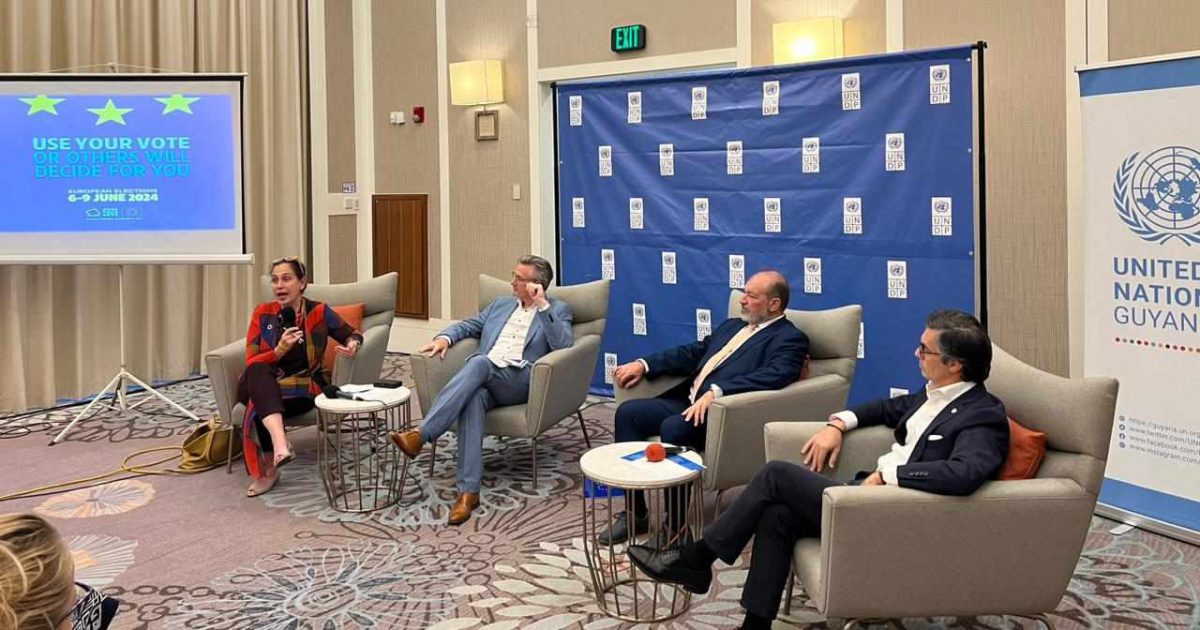-democracy forum hears
Local elections observer missions are more important watchdogs of the process than international monitors and countries should ensure that representatives from many diverse groups are a part of that process, a panel on democracy underscored on Wednesday.
“At the UN, we are pushing very hard (for) national observers …they are the ones who have good coverage, that’s important and they are needed…,” Gerardo Noto – Resident Representative of the UNDP for Guyana and Suriname told a University of Guyana ‘Democracy Talks’ forum, held in collaboration with the United Nations Development Programme, the European Union and other partners at the Marriott Hotel.
He was joined by panelists Luis Martinez-Betanzos UNDP’s Chief Electoral Advisor for Latin America and the Caribbean and EU Ambassador René van Nes for Part 2 of UG’s Democracy Talks series and focused on the European Parliamentary Elections, set from June 6th to 9th of this year. The forum was moderated by Yeşim Oruç, – Resident Coordinator United Nations Guyana.
van Nes echoed the importance of local observers to the elections process and was quick to point out that the EU’s observer missions are never imposed on any country and it is always by the invitation of the host nation.
He also informed that the EU will have a full mission for Guyana’s 2025 General and Regional Elections and that it will be on the ground more than three months ahead of those elections.
“Observation is always about accepting the local rules and laws…we will accept how elections went according to your rules. Of course politicians want to win and of course if they win in a free and fair way they want others to say ‘You have won fairly and squarely’…so that no one says this went wrong or that went wrong. I think it helps the democratic process,” he said.
“Local observers are so much more important than international observers…,” he added.
Giving an overview of the work entailed on such missions, the EU envoy said “If it is a full EU Observer mission like this one will be, then the full team will come more than three months in advance and they will set up media monitoring. They will start to observe how the media is being used, whether there is (equality) between the parties. So that is a very long process…it goes bigger and bigger and then in full capacity on E-Day itself but the work that is done before that is as important as observing the Elections Day.”
For her part, Oruc emphasized that locals seeing international observers should never look at it as any country infringing on their sovereignty but as a process of shared competency of the inviting country and the visiting observers, wherever they may come from.
“It is never done because somebody wants to come and teach you about elections. Some countries have concerns about their own countries’ elections credibilities or whatever or just want to make sure that everybody feels equally trusting of the process,” she said.
The UN Resident Co-ordinator noted that Guyana has a good track record between the international and local observers working together but noted that it “is good to, years before the elections, invest in domestic observers so that, for example you have persons with disabilities can observe, making sure you have different groups from different geographical locations, local civil society, NGOs…all be part of observing”.






